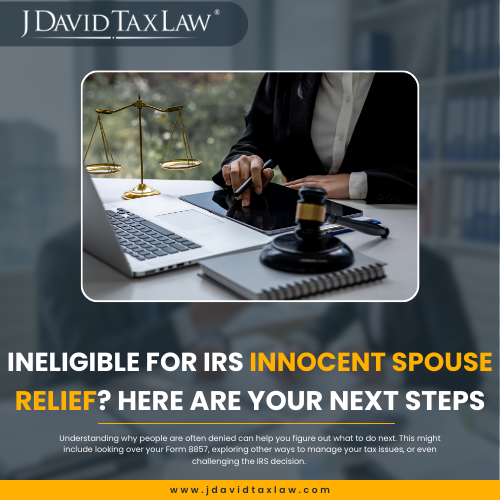For many taxpayers, the First Time Penalty Abatement (FTA) program can provide immediate relief by removing certain IRS penalties if you’ve been compliant in previous years. Our team has helped countless clients qualify for this valuable option, saving them money while addressing their tax issues quickly and effectively. Here’s what sets J. David Tax Law apart when it comes to securing results like these:
- Home
- About Us
- IRS Calculator
- Services

Tax Debt Solutions

Specialized Tax Services

IRS Enforcement Actions

Tax Filing & Compliance

IRS Disputes & Audits
- Locations
- Contact Us
Call for Free Consultation




















